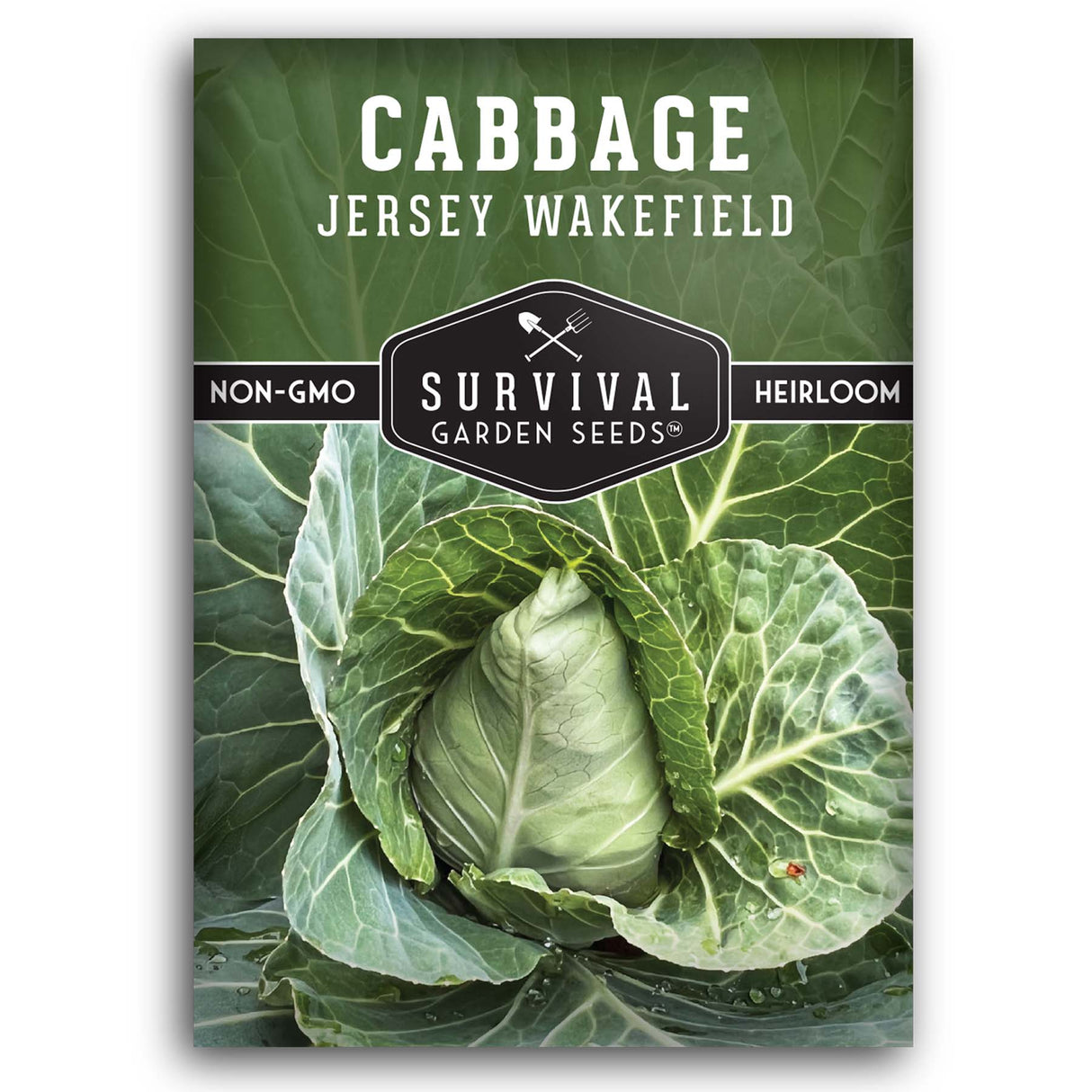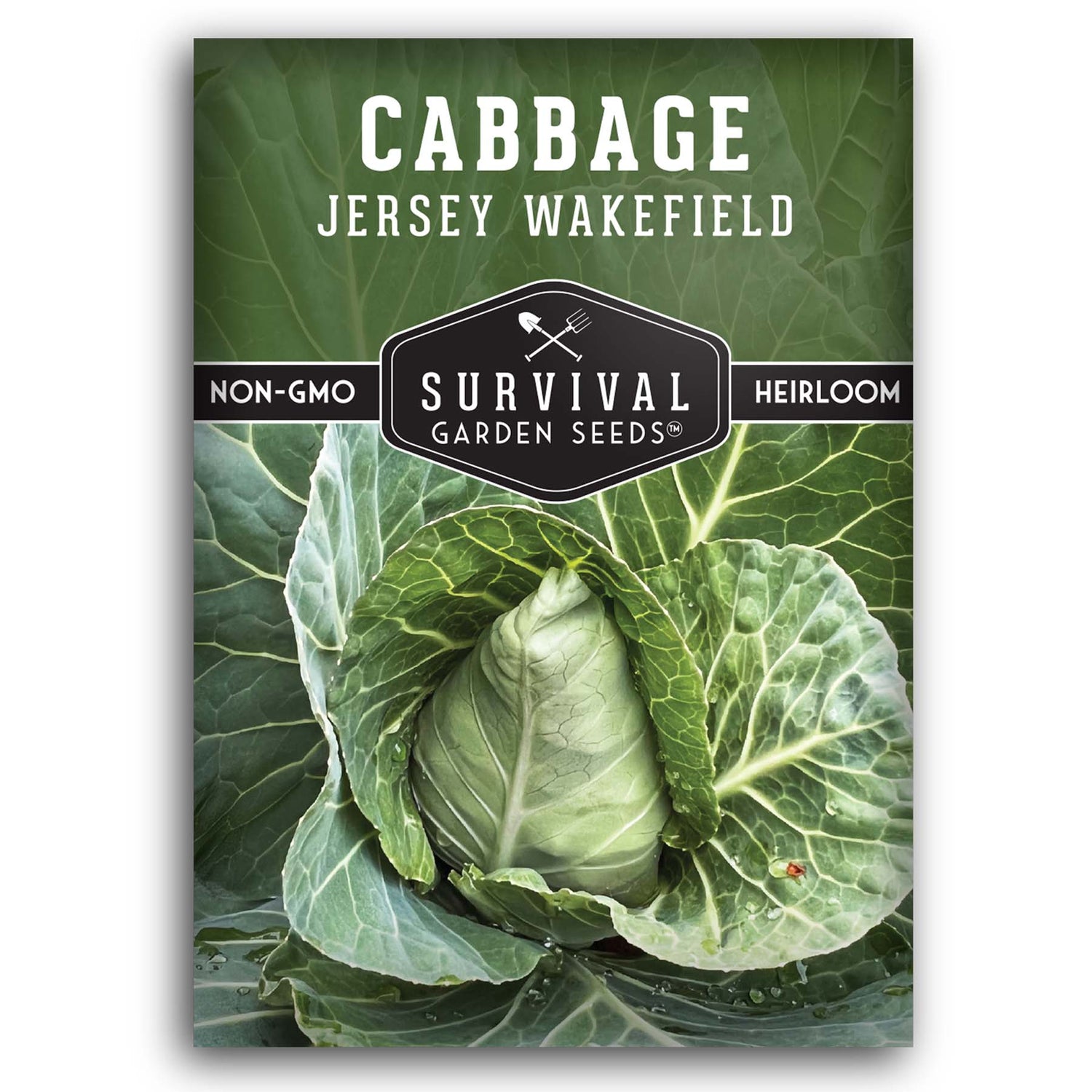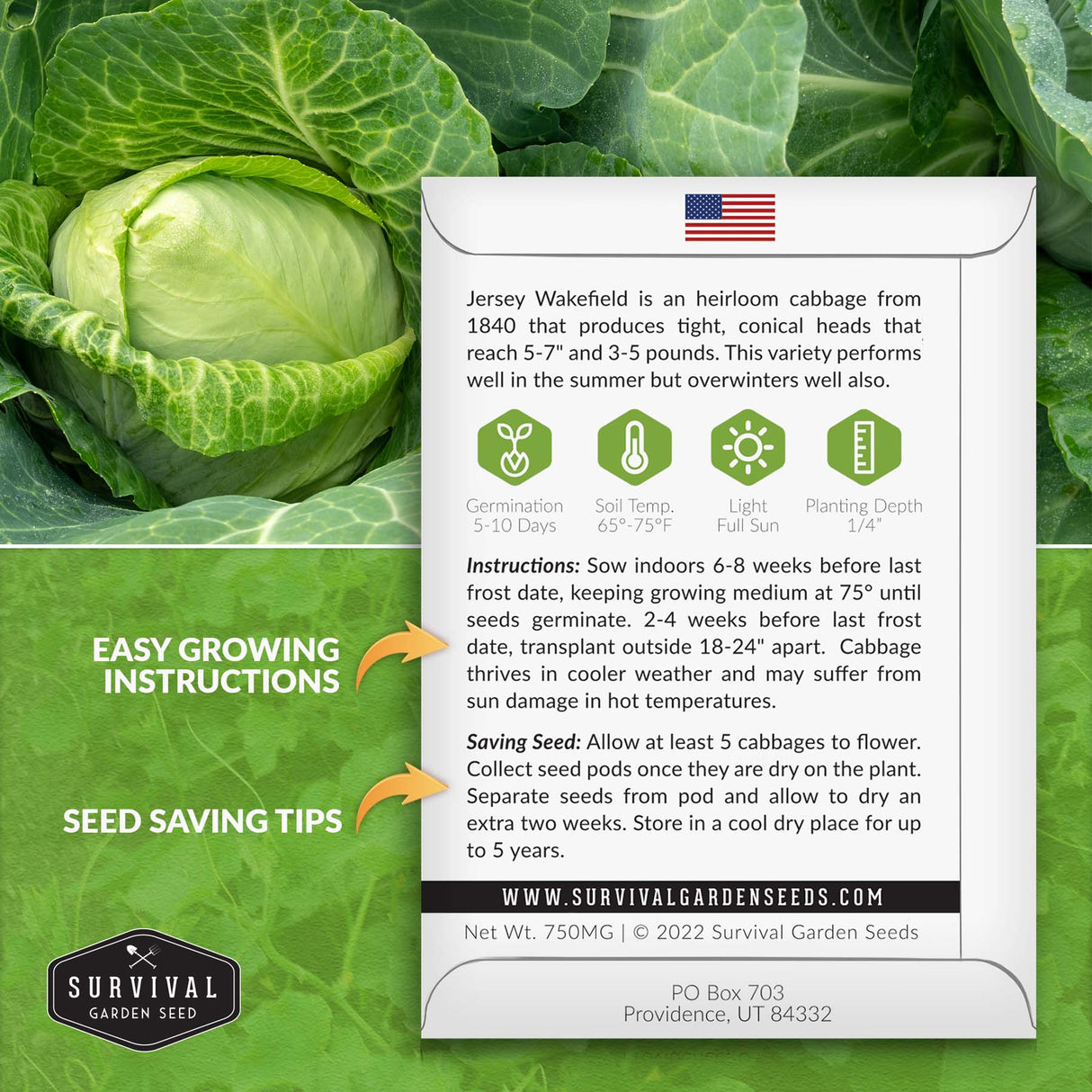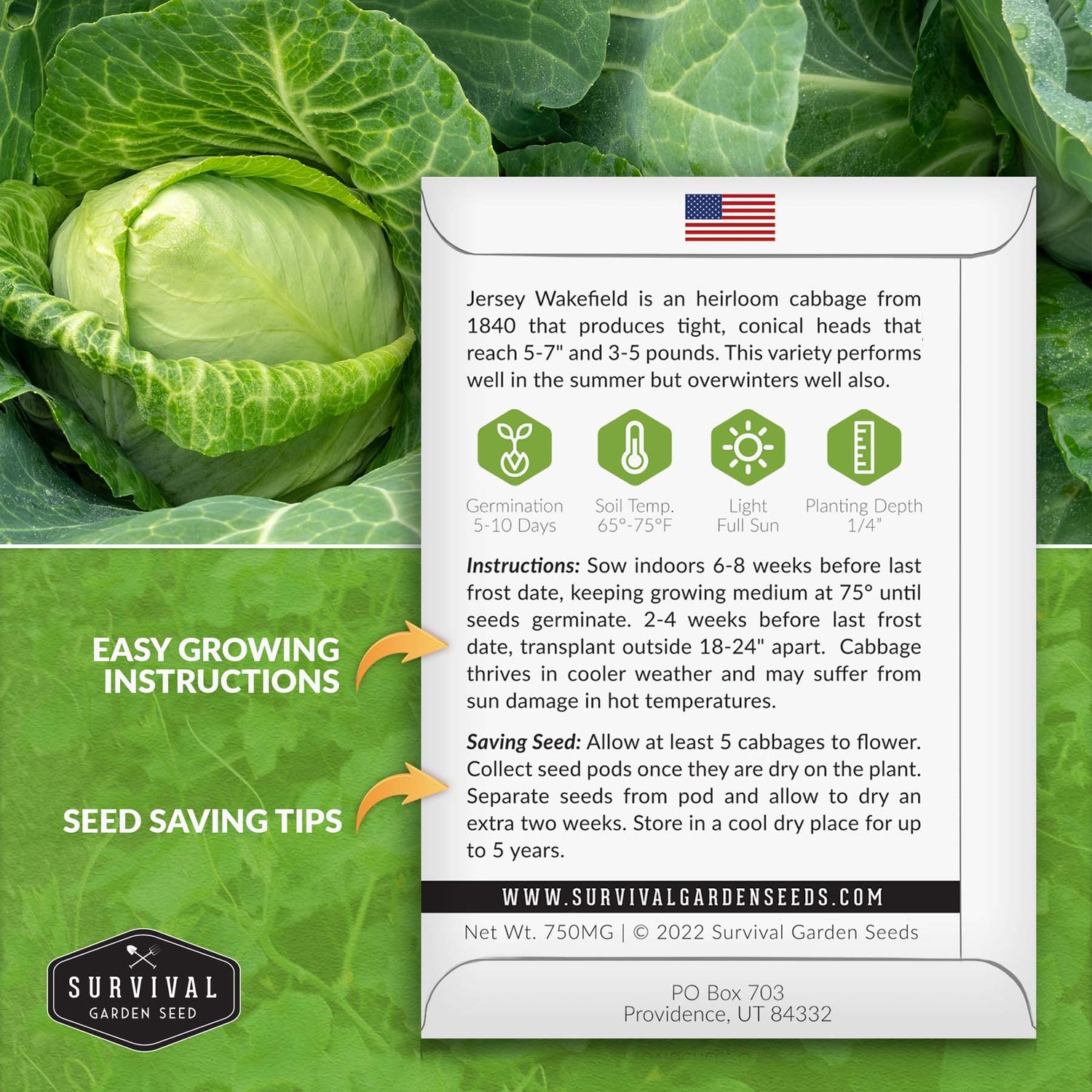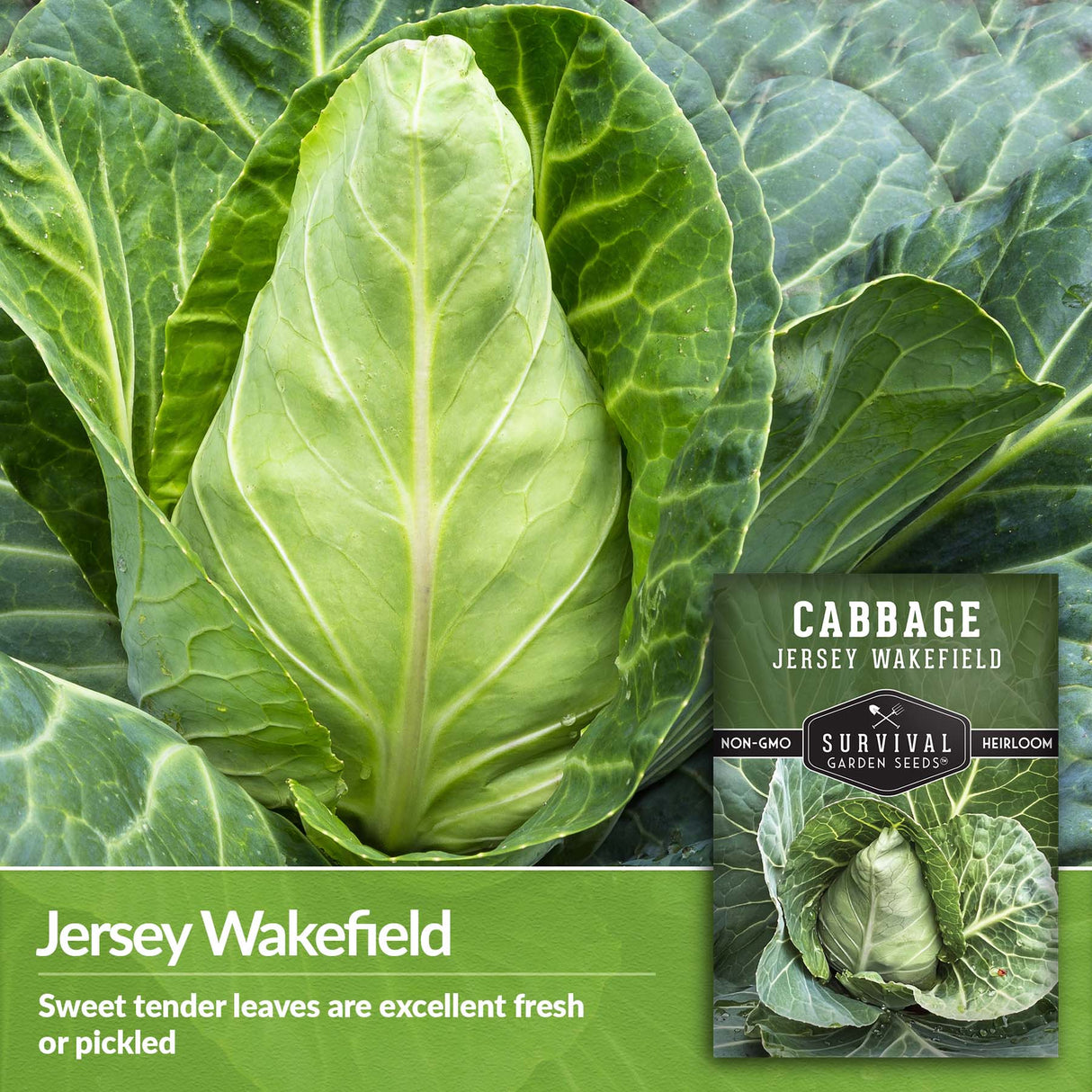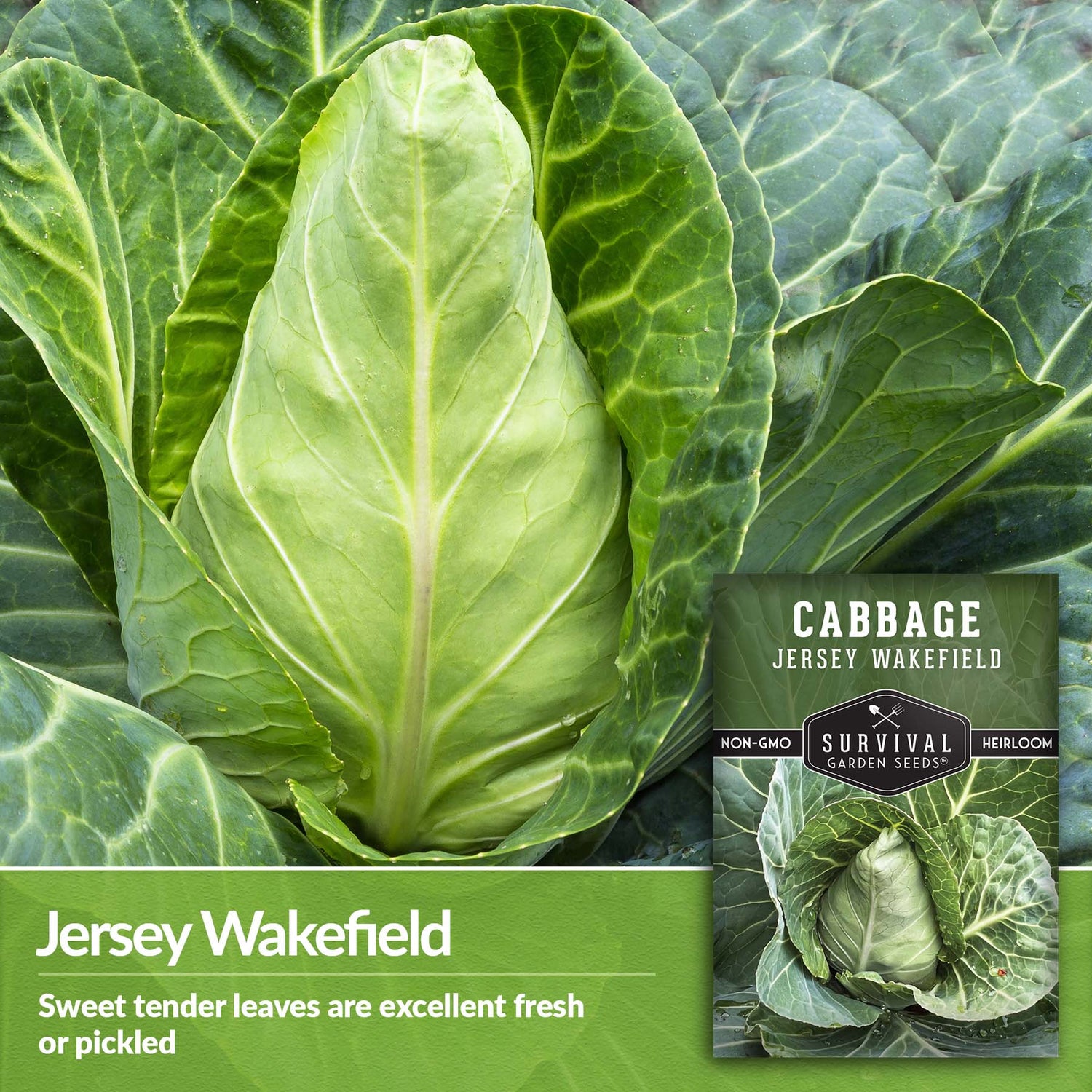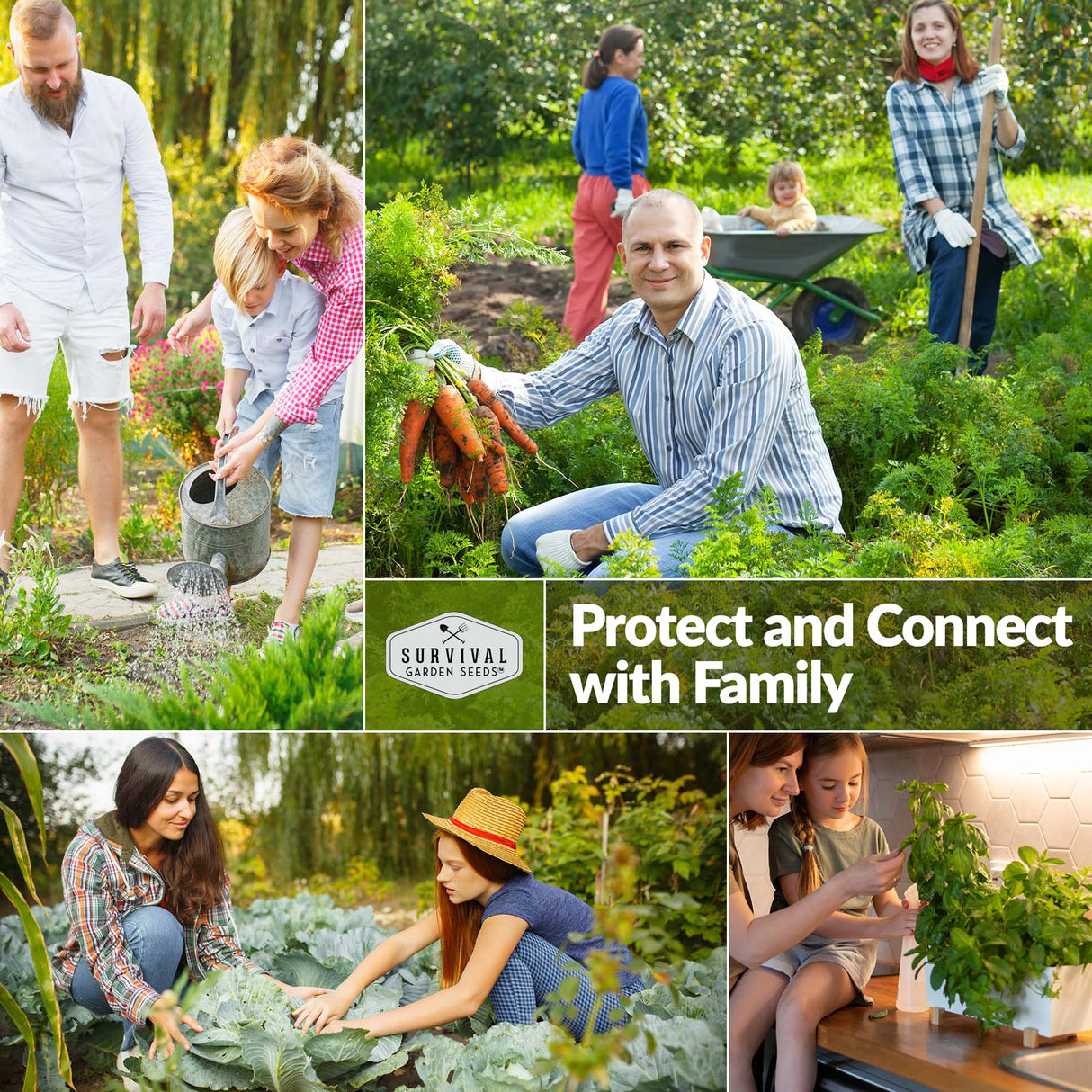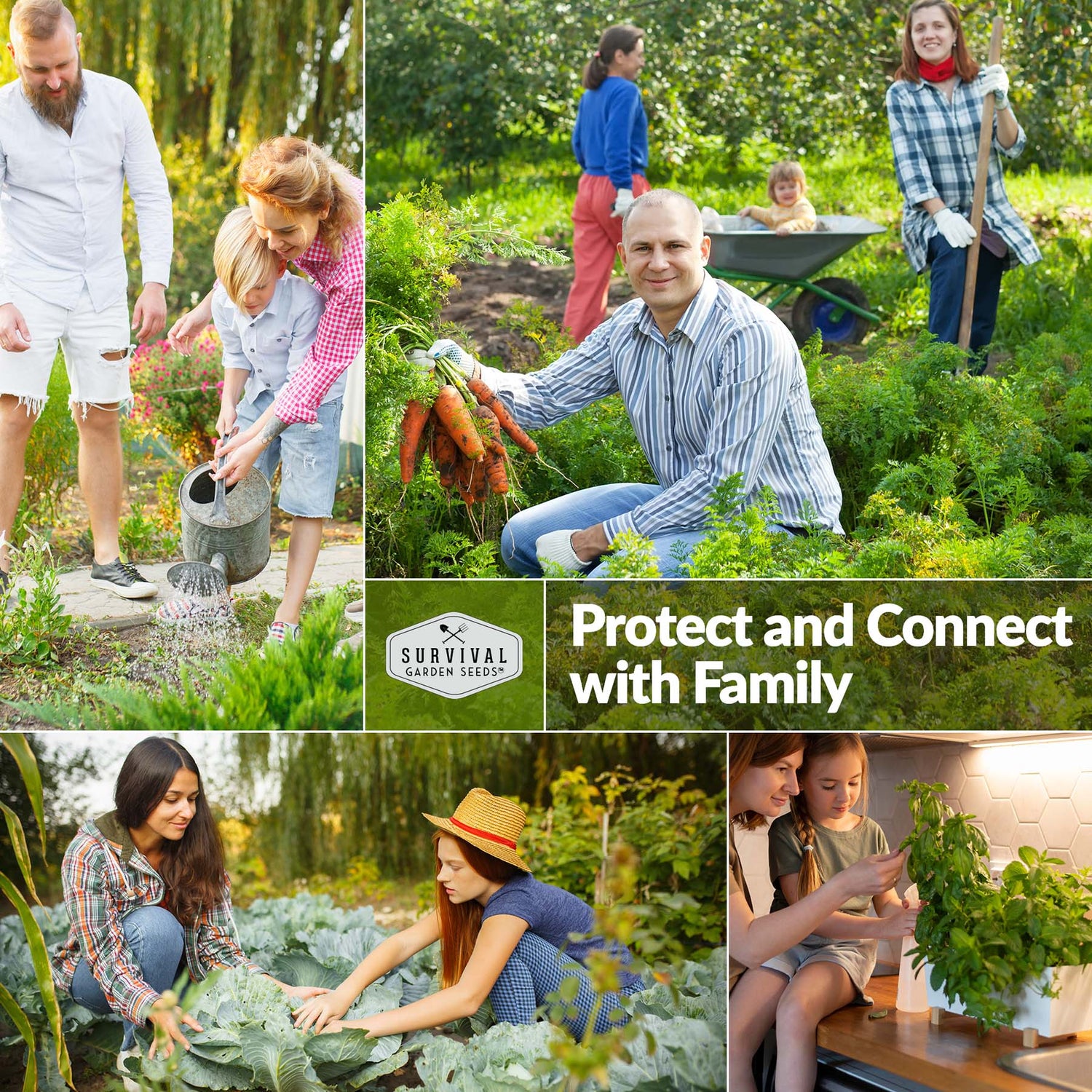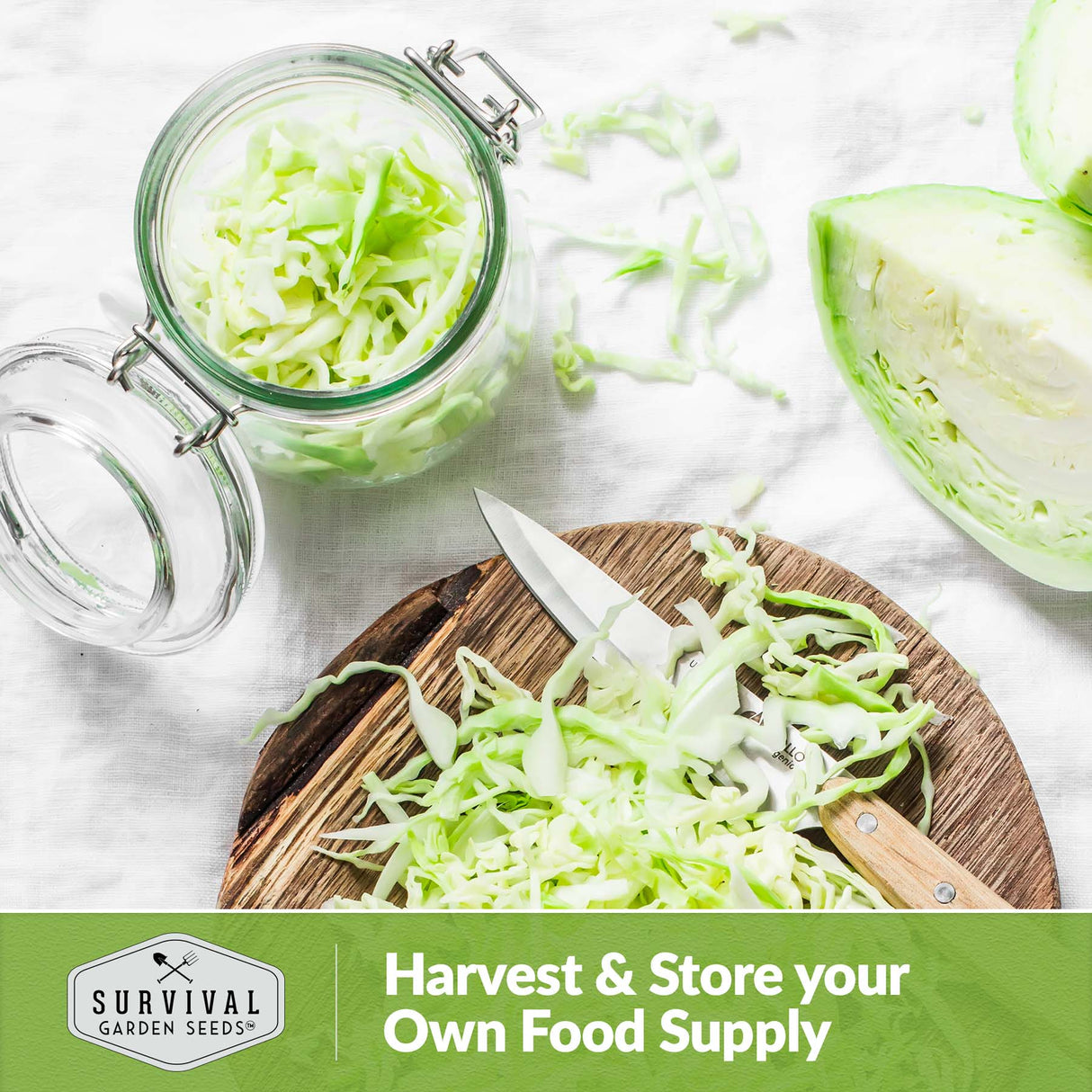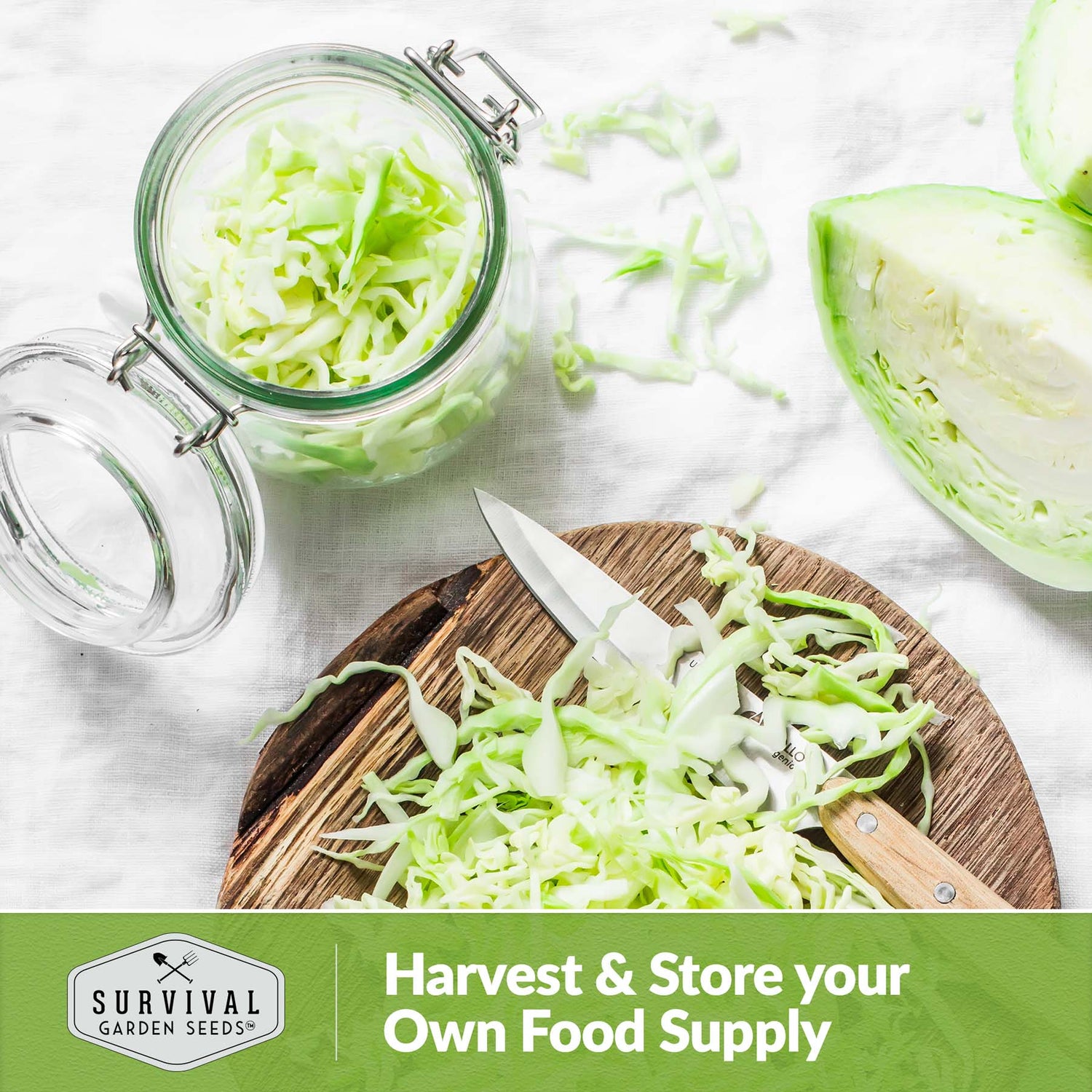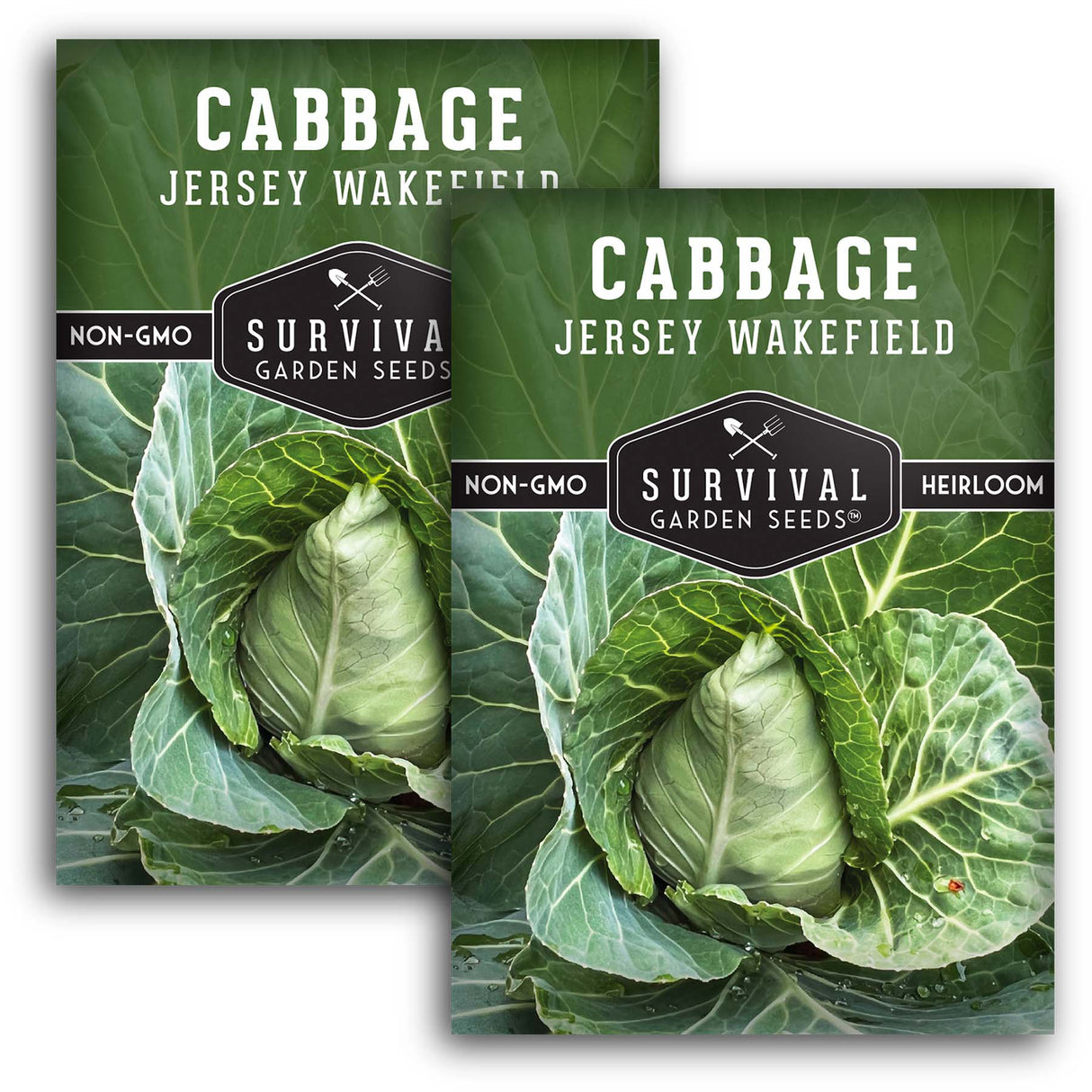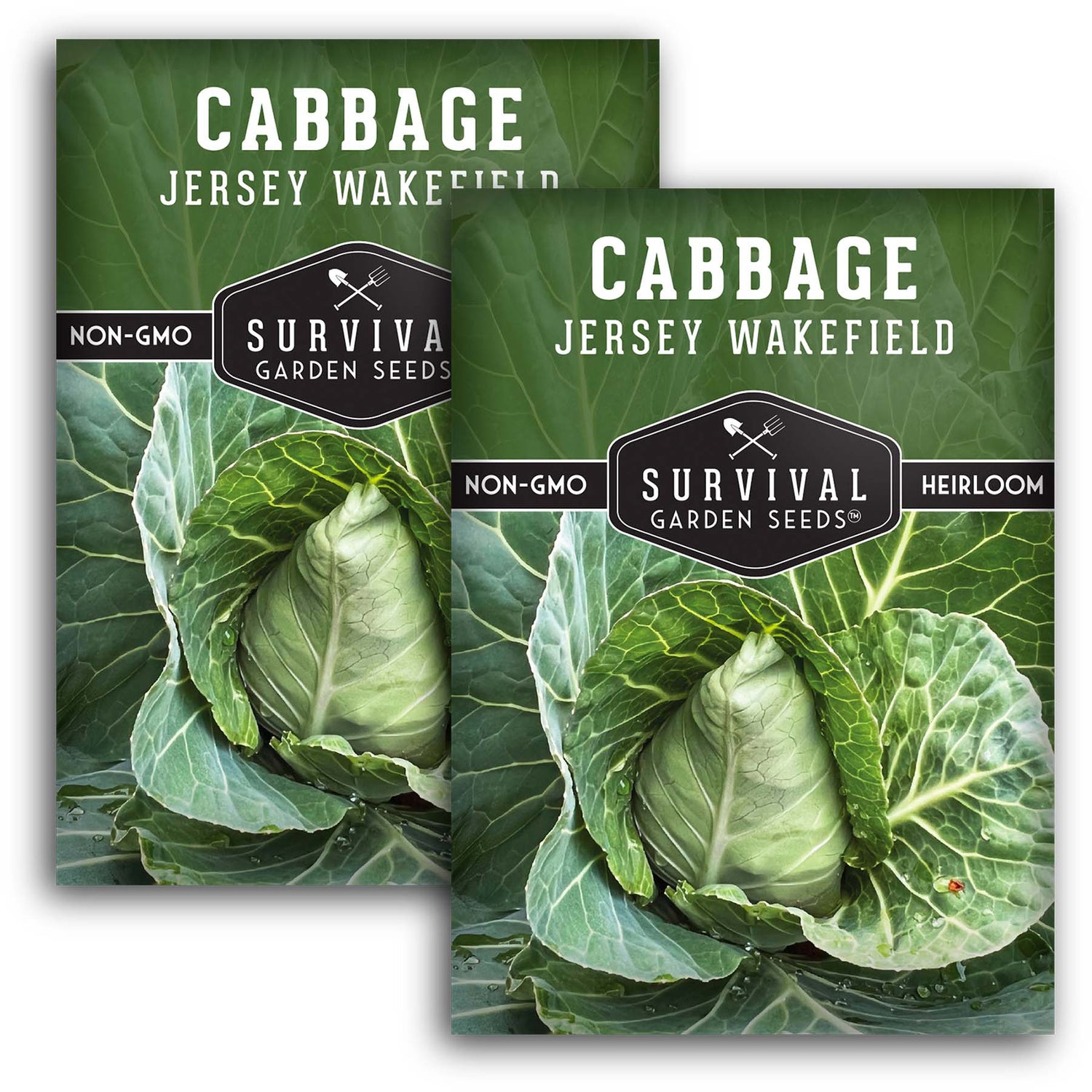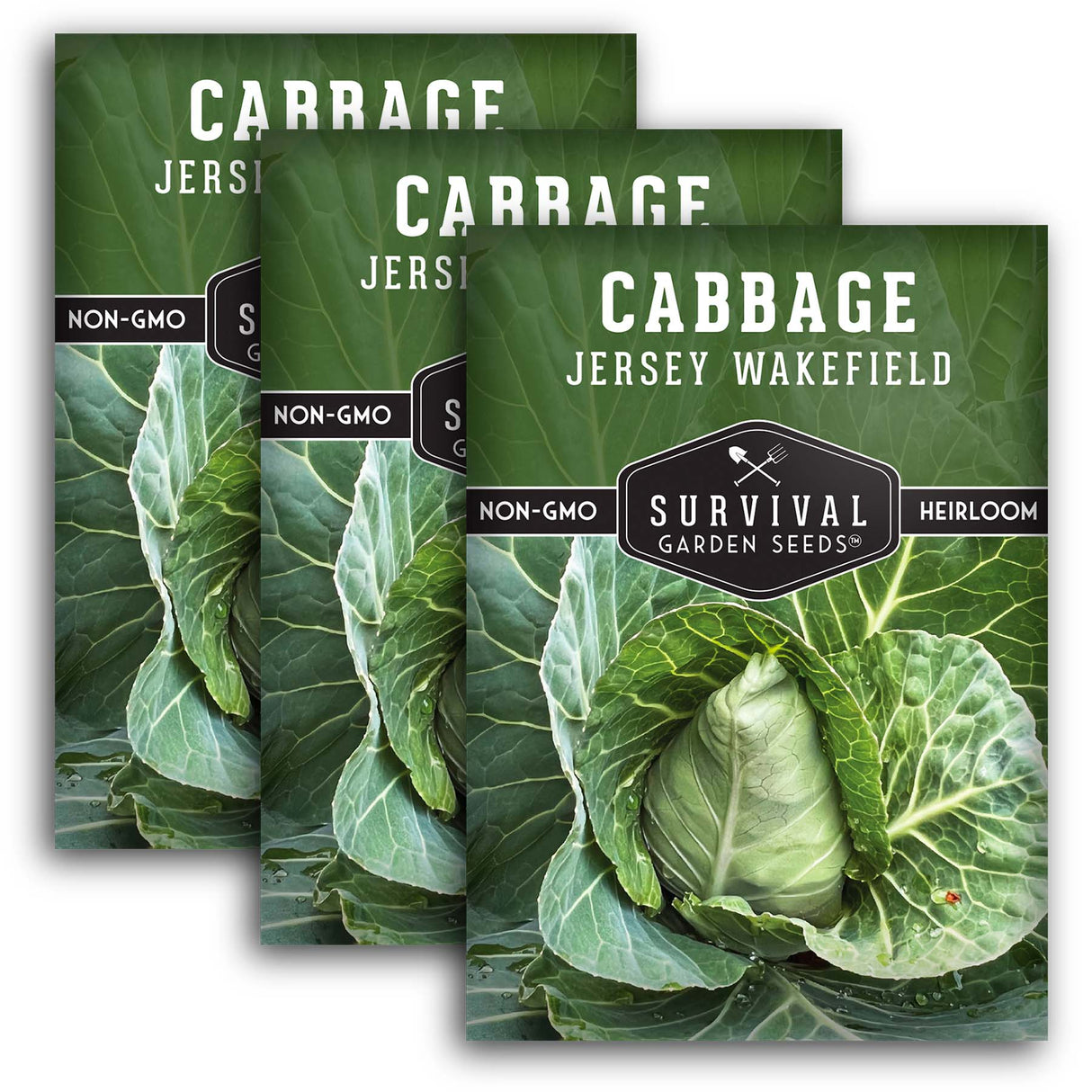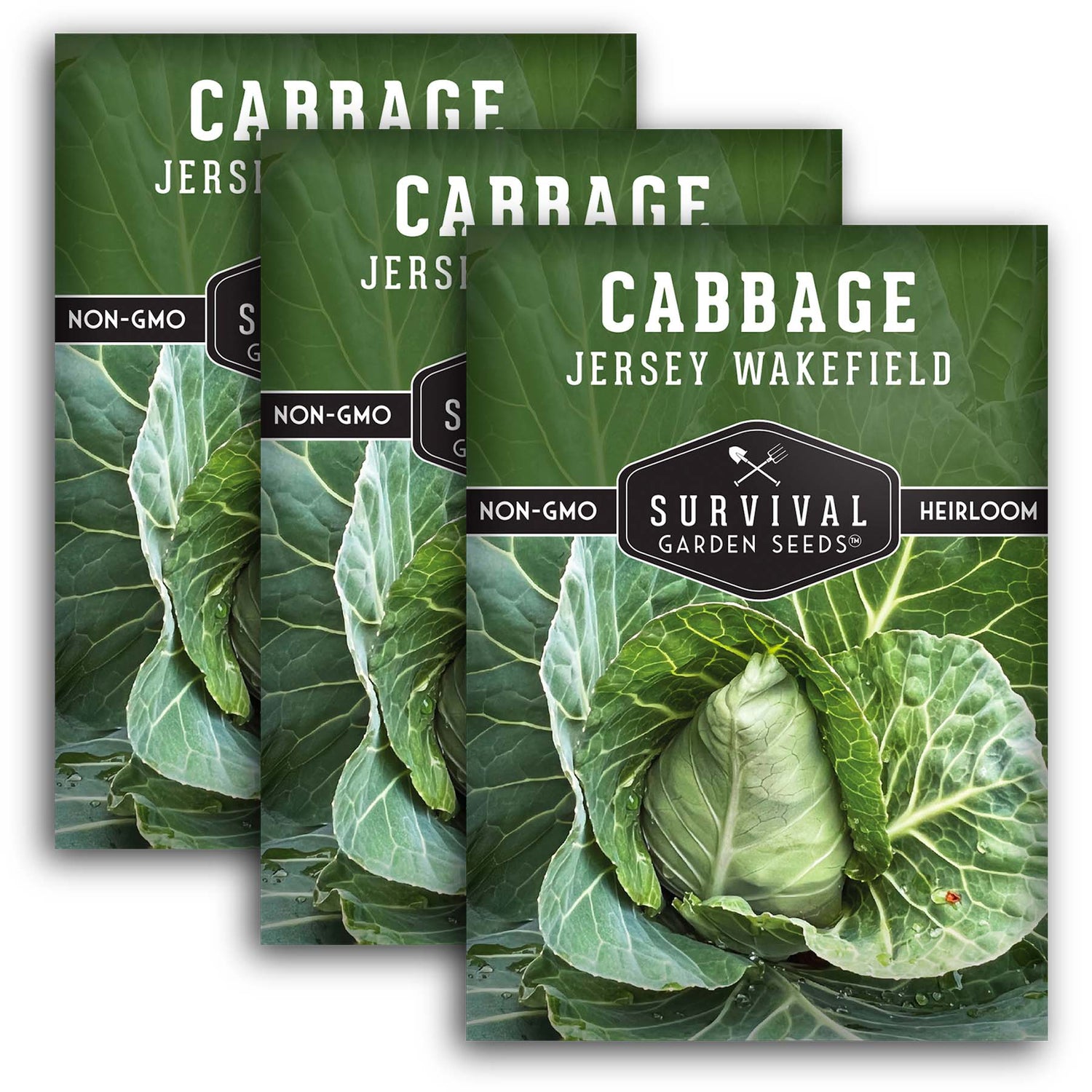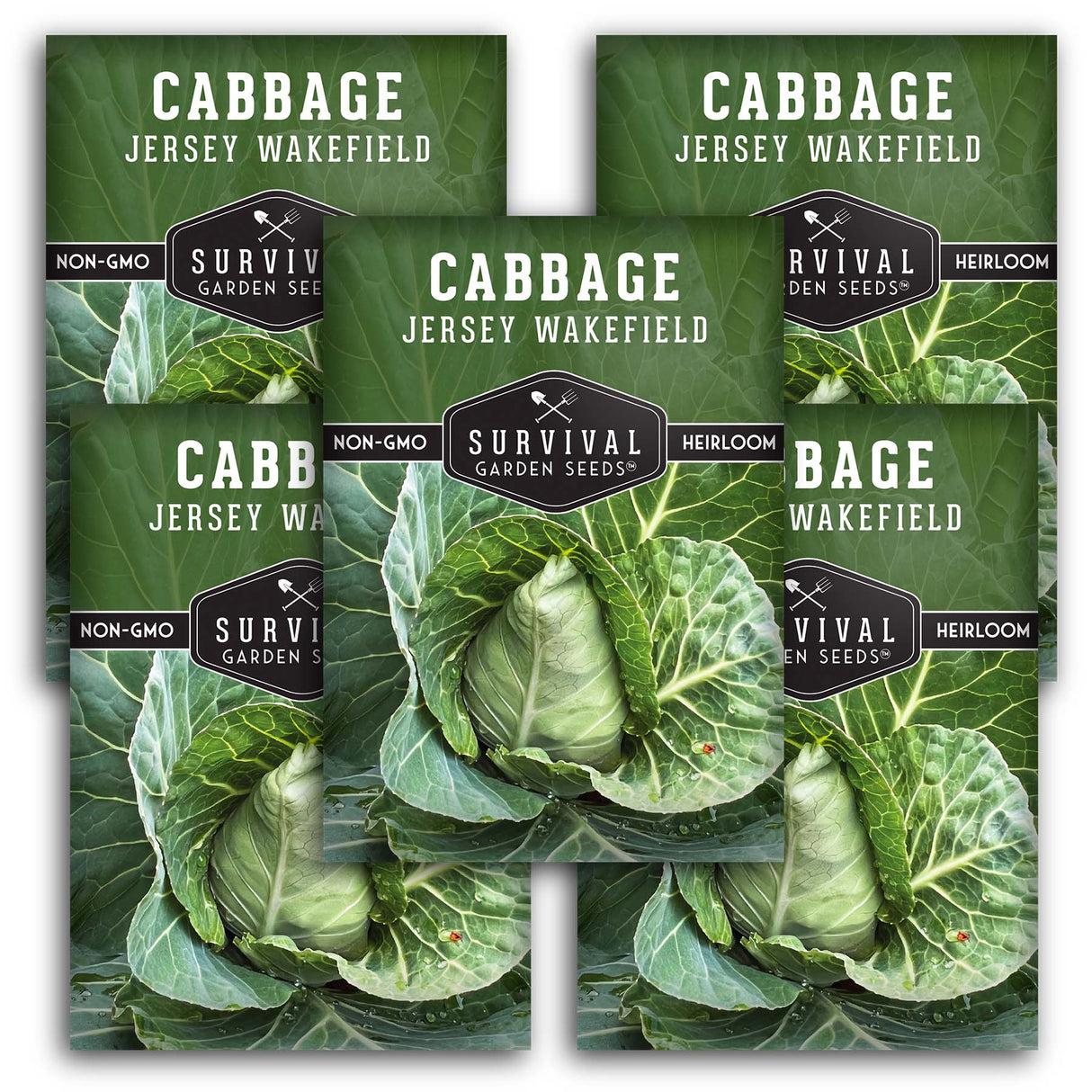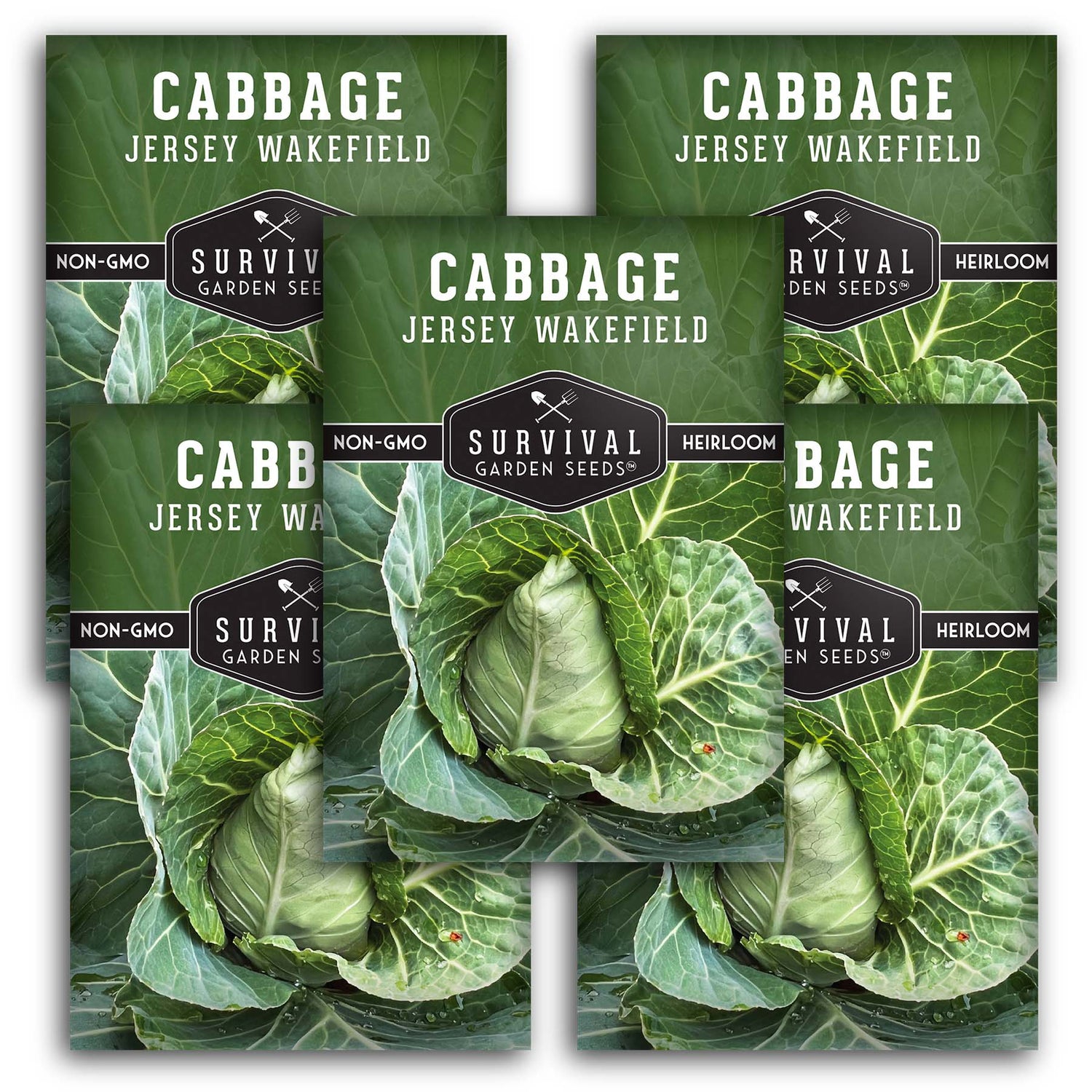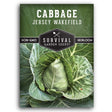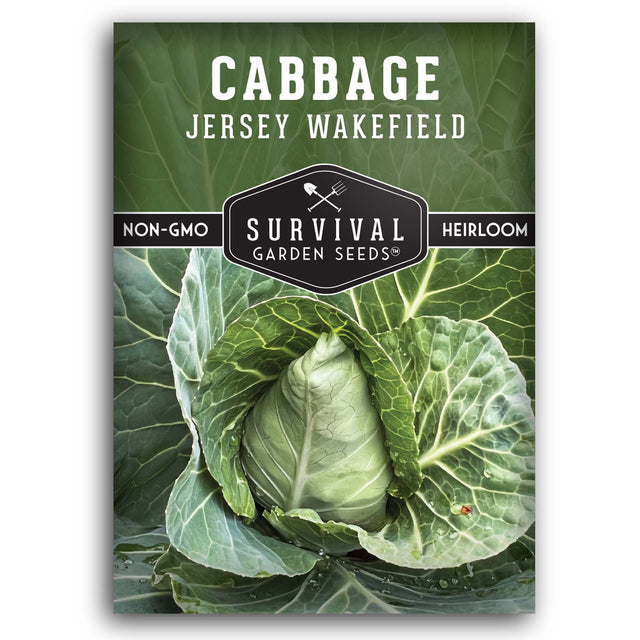Jersey Wakefield Cabbage Seeds – Heirloom Non-GMO, Early-Maturing Pointed Cabbage for Compact Gardens
Heirloom - Non-GMO - Reliable Germination
Jersey Wakefield Cabbage Seeds – Heirloom Non-GMO, Early-Maturing Pointed Cabbage for Compact Gardens - 1 Packet is backordered and will ship as soon as it is back in stock.
Bring a time-tested classic back to your home garden with Jersey Wakefield Cabbage Seeds from Survival Garden Seeds. This historic heirloom—first introduced in the 1840s—remains a gardener favorite for its distinctive pointed heads, sweet flavor, and dependable early harvests. Compact yet productive, it’s ideal for small gardens, raised beds, and anyone seeking a traditional, reliable cabbage variety.
Distinctive, Early-Maturing Heirloom:
Jersey Wakefield forms cone-shaped, tight green heads weighing 3–5 lbs with a small core and tender, crisp leaves. Its naturally protective wrapper leaves shield the crop, making it a durable performer even in variable weather. With a maturity of about 70 days from transplant, it’s one of the earliest cabbages to harvest—perfect for gardeners who value quick, steady results.
Why Gardeners Love Jersey Wakefield:
- Unique pointed heads – Compact and space-efficient, great for raised beds.
- Sweet, mild flavor – Delicious raw in slaws or cooked in soups, stir-fries, and cabbage rolls.
- Early harvest – Ready in about 70 days, producing tender leaves before most varieties.
- Cold-hardy and adaptable – Performs well in cool northern climates and can overwinter where winters are mild.
How to Grow:
Start seeds indoors 6–8 weeks before your last frost date, then transplant seedlings to full sun in rich, well-drained soil. Space plants 18–24 inches apart in rows 24–36 inches wide, keeping soil evenly moist and mulched to retain water. Jersey Wakefield thrives in cool conditions and is well-suited for both spring and fall plantings.
Culinary Versatility:
This variety’s sweet, tender leaves are excellent for slaws, salads, wraps, soups, and traditional cabbage rolls. Its refined flavor and crisp texture make it a versatile choice for both raw and cooked dishes.
Net Wt. 750MG
Heirloom Vegetable Seeds
All of our seeds are open-pollinated, non-GMO, heirloom varieties with tested germination rates
Specifications
Specifications
-
Botanical Name
-
Planting Zones
-
Light
-
Soil Temp for Germination
-
Germination Time
-
Planting Depth
-
Plant Size
-
Days to Harvest
-
Growing Instructions
-
Seed Saving Instructions
-
Seed Count (approximate)
Payment & Security
Your payment information is processed securely. We do not store credit card details nor have access to your credit card information.
Why Choose Survival Garden Seeds
At Survival Garden Seeds, we believe in preparing today for tomorrow’s peace of mind. That’s why we offer only heirloom, non-GMO, and untreated seeds you can trust to nourish your family and support a sustainable lifestyle. As a family-owned American company, we’re committed to providing seeds that grow strong and true—helping you cultivate health, resilience, and beauty in your garden.
Frequently Asked Questions
Are your seeds heirloom and open-pollinated?
Are your seeds heirloom and open-pollinated?
Yes. All of our seeds are heirloom, open-pollinated varieties, which means they can produce seeds that grow true to type and are suitable for seed saving.
You can learn more about open-pollinated, heirloom, and non-GMO seeds in our Survival Garden Training blog.
Are your seeds non-GMO?
Are your seeds non-GMO?
Yes. All Survival Garden Seeds are 100% non-GMO. Our seeds are open-pollinated heirloom varieties and are never genetically modified.
Are your seeds treated with chemicals?
Are your seeds treated with chemicals?
No. Our seeds are completely untreated and free from chemical coatings, fungicides, or synthetic treatments.
How do I know my seeds are fresh?
How do I know my seeds are fresh?
Every seed packet includes a packed-for date, and we germination-test each seed lot before packaging to ensure high viability.
What is the shelf life of your seeds?
What is the shelf life of your seeds?
Most seeds remain viable for 3 to 5 years or longer when stored properly in a cool, dry place away from light and moisture.
In what USDA hardiness zones can I grow your seeds?
In what USDA hardiness zones can I grow your seeds?
Our varieties are selected to grow successfully across USDA Hardiness Zones 3 through 10. Each packet includes variety-specific planting guidance and germination tips.

